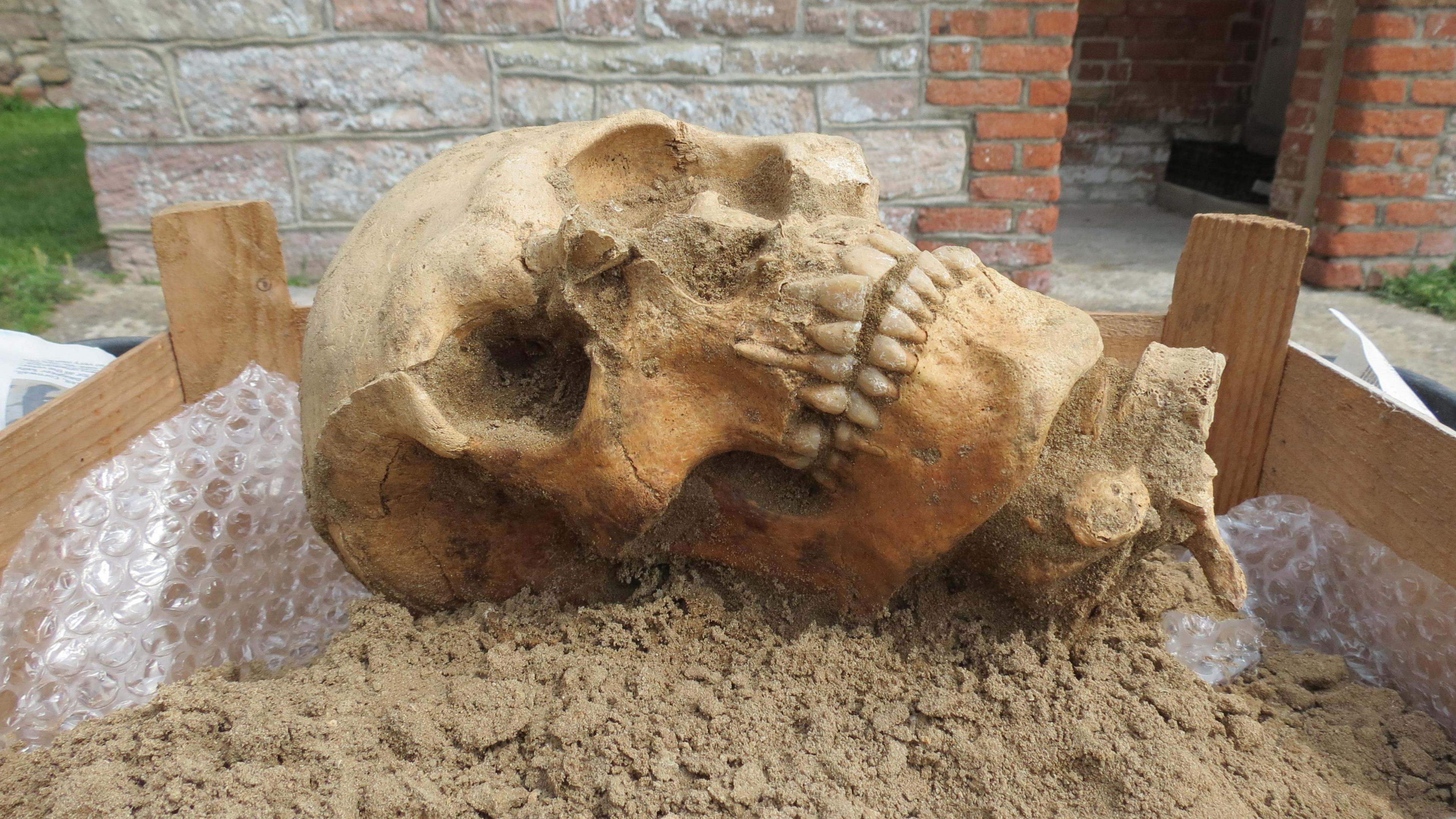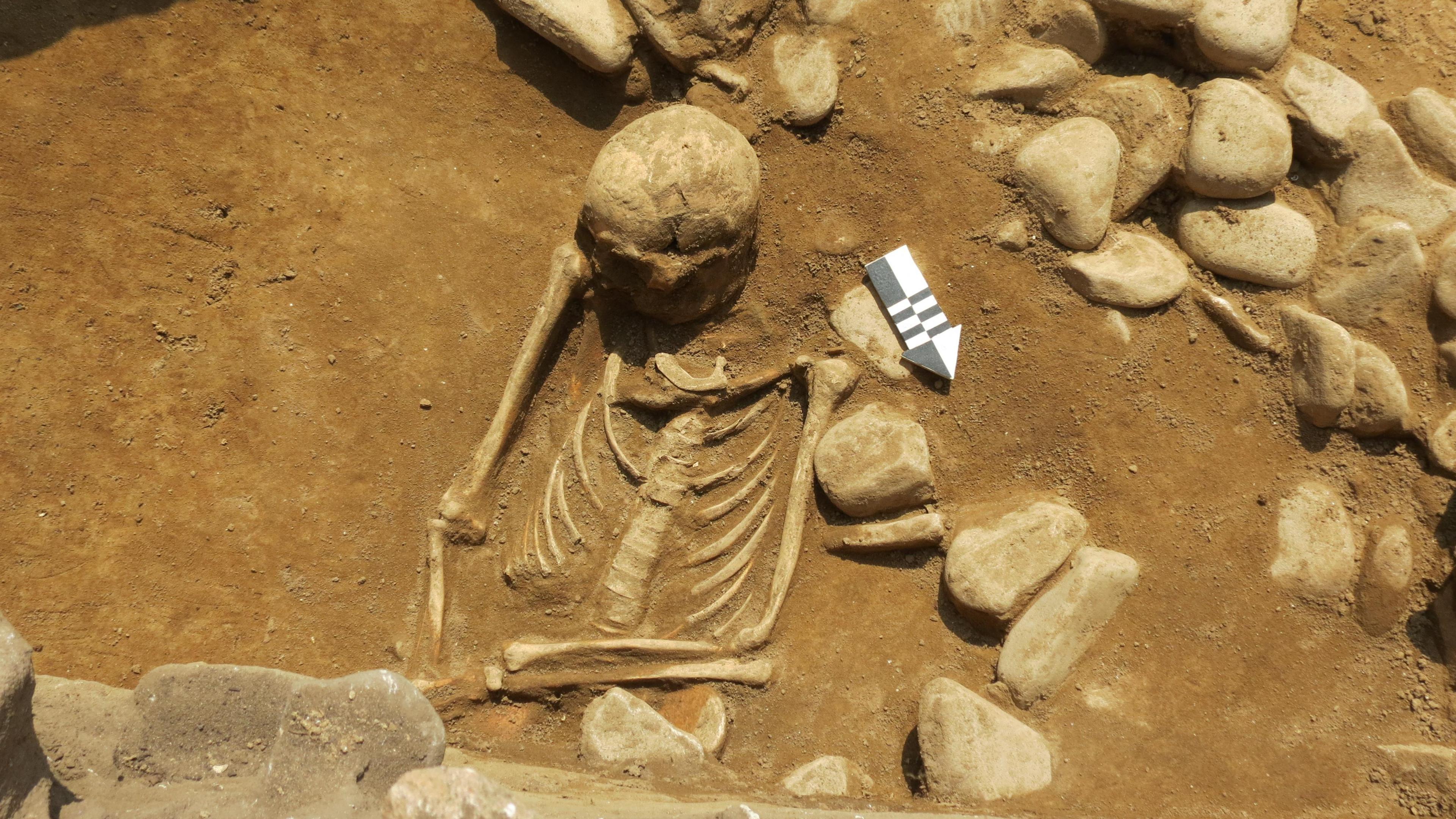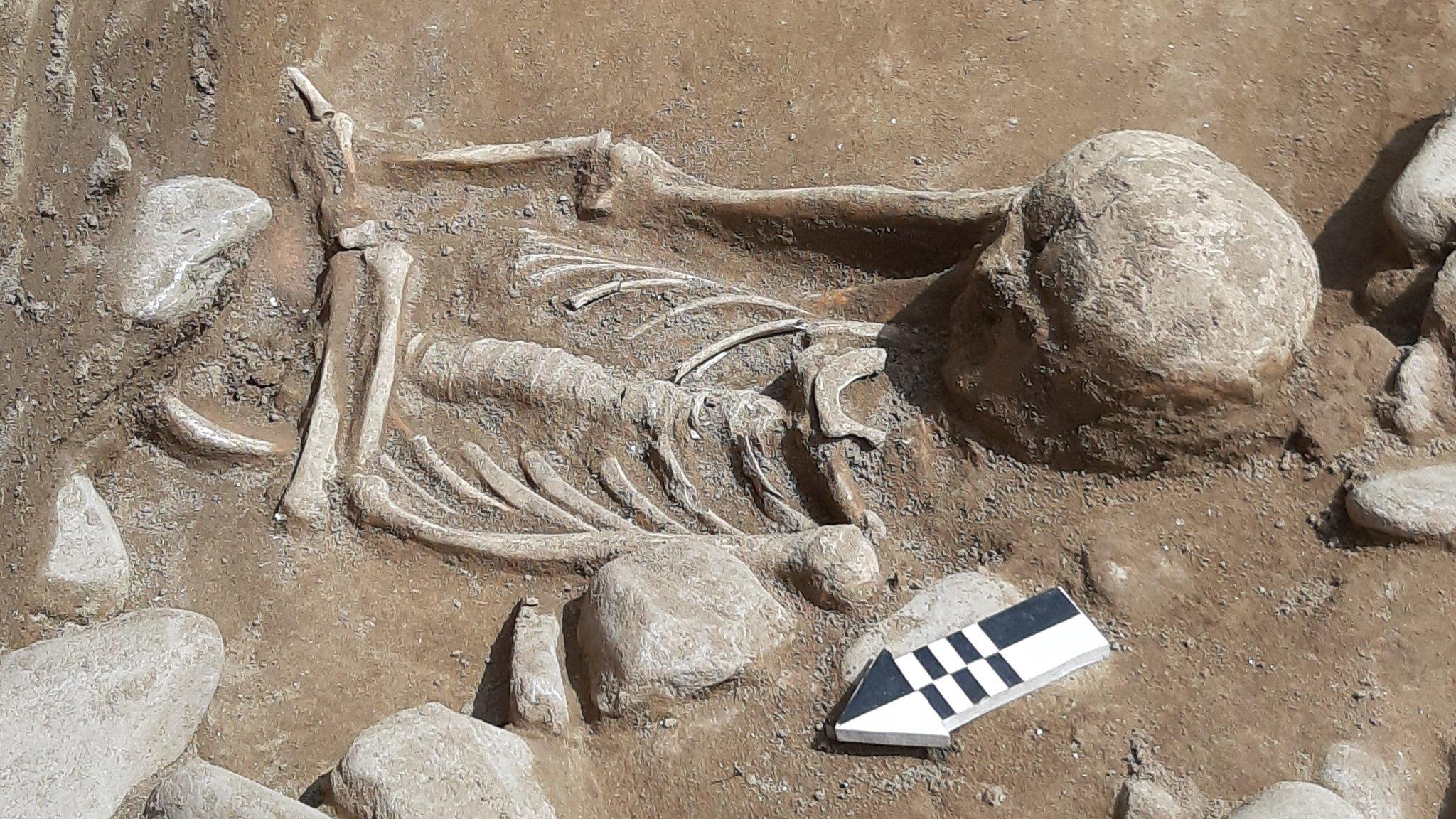Alderney skeleton about 2,500 years old

Archaeologists say the skeleton still has "a very good set of teeth"
At a glance
Skeleton found in Alderney is about 2,500 years old, archaeologists say
It is estimated the bones are from the late Iron Age between 751 and 408 BC
The skeleton was that of a teenager or young man aged between 17 and 20
- Published
Archaeologist who uncovered a skeleton during a dig in May say the bones are younger than first thought, at about 2,500 years old.
The skeleton was found at Longis Common, Alderney, the site of both an Iron Age cemetery and a Roman settlement.
It had been thought the bones could have come from the Bronze Age, but it is now estimated they date from between 751 and 408 BC, during the late Iron Age.
Dr Phil de Jersey, States of Guernsey Archaeologist, said the team used radio carbon dating to estimate the age of the bones.
"We're very fortunate that we've got a bone specialist on the island who is looking at the bones and she has confirmed he's definitely a 'he'.
"According to what has happened to the bones on your body, you can age individuals very precisely, so in this case we think he's a young man/late teens."
Dr de Jersey said the skeleton was that of a male aged between 17 and 20, but no cause of death was determined.

The skeleton is estimated to be that of a teenager or young man aged 17 to 20
He added that the skeleton's teeth could help them find out more.
"He had a very good set of teeth, he had all 32... We might be able to do or to get some more scientific work done on the teeth because that can tell you things about the diet, and possibly sometimes the origins of the person as well," he said.
The skeleton will go to Alderney Museum, which will decide whether it goes into storage or on display.
Follow BBC Guernsey on Twitter, external and Facebook, external. Send your story ideas to channel.islands@bbc.co.uk, external.
Related topics
- Published23 May 2023
